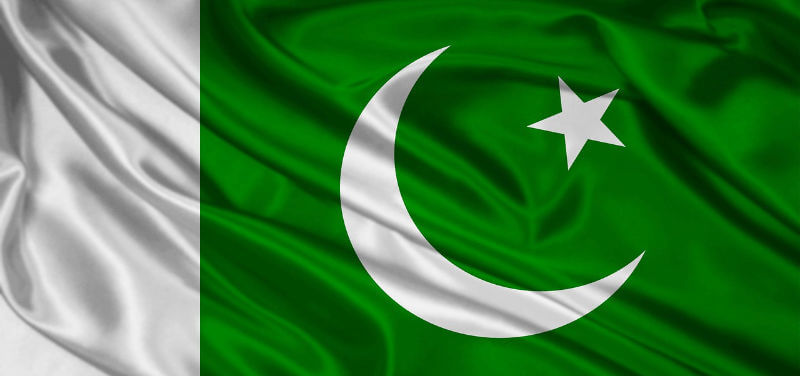Pakistan’s fight against terrorism
June 12, 2019 | Expert Insights

Background
Pakistan's tribal region along its border with Afghanistan has been described as a safe haven for terrorists. It has long been accused by its neighbours India, Afghanistan, Iran and western nations like the United States and the United Kingdom of its involvement in terrorist activities in the region and beyond.
From 1979 Pakistan was in favour of religious militancy. Former Pakistan President Pervez Musharraf has admitted that Pakistan supported and trained terrorist groups like Lashkar-e-Taiba (LeT) in the 1990s to carry out militancy in Kashmir. It actively infiltrated militants across the Line of Control (LoC) from Pakistan to carry out sabotage activities with the help of the ISI and the Pakistan Army. These organizations have long considered Lashkar-e-Taiba to be the country's most reliable proxy against India and the group still provides utility in this regard as well as the potential for leverage at the negotiating table.
Pakistan is being threatened by international isolation on the allegations of its inability to act on countering terrorism. It was placed on FATF’s grey list for terror financing in June 2018, on a proposal moved by the US, UK, Germany and France. FATF is the global watchdog on anti-money laundering and combating financing terror.
Analysis
The Joint Group of Asia Pacific Group (APG) has informed Pakistan that an assessment of its action plan against eight proscribed terror outfits, including Lashkar-e-Tayyaba and Jaish-e-Muhammad, after it was grey-listed by the Financial Action Task Force (FATF) for terror financing has found that its compliance on 18 of 27 action plans was unsatisfactory.
APG specifically demanded stringent actionable steps by Pakistan against Da’esh, Al Qaeda, Jamaat-ud Dawa, Falah-i-Insaniyat Foundation, Lashkar-e-Tayyaba, Jaish-e-Muhammad, Haqqani Network, and persons affiliated with the Taliban, and that its law enforcement agencies show more concrete outcomes on fighting money laundering and terror-financing.
India’s Financial Intelligence Unit (FIU) Director General was a co-chair at the APG meeting despite Pakistan’s demand for India’s removal from the group while its case was being considered. FATF’s Plenary and Working Group meetings are scheduled to be held in Orlando from June 16 to 21, where such a proposal could be moved.
Pakistan requires votes of at least 15 of FATF’s 36 voting members to move out of the greylist, sources said, and a minimum of three votes to prevent itself from being blacklisted. Pakistan requires votes of at least 15 of FATF’s 36 voting members to move out of the greylist, sources said, and a minimum of three votes to prevent itself from being blacklisted.
Apart from FATF, the US in March pressured Pakistan to take “tangible and irreversible action” against terrorist groups on its soil and deny safe haven to them to launch cross-border attacks. The development came as Washington reiterated its firm support to New Delhi in the fight against terrorism.
To avoid being put on the blacklist, Pakistan has seized properties associated with terror groups in Pakistan-occupied and seized 771 seminaries — educational institutions run by the Lashkar-e-Taiba and its fronts, Jamaat-ud Dawa and Falah-i-Insaniyat, and the Jaish-e-Mohammad, intelligence received by the Indian government has indicated. An anti-terrorism court in Pakistan has also sentenced three activists of the Masood Azhar-led Jaish-e-Mohammad (JeM) for five years each in jail for arranging funds for the proscribed terror outfit amid pressure from the global community to rein in militant groups.
Counterpoint
Journalist Stephen Schwartz notes that several terrorist and criminal groups are "backed by senior officers in the Pakistani army, the country's ISI intelligence establishment and other armed bodies of the state. According to Ted Galen Carpenter, a senior fellow for defense and foreign policy studies at the Cato Institute, "Without the active support of the government in Islamabad, it is doubtful whether the Taliban could ever have come to power in Afghanistan. Pakistani authorities helped fund the militia and equip it with military hardware.
Assessment
Our assessment is that the main funding sources for terror organization is the oil. For example, by occupying vast areas of Iraq and Syria, ISIS took control of many oil and gas fields. According to expert estimates, ISIS currently controls 60% of oil reserves in Syria, and was able to get its hand on the seven major oil and gas reserves in Iraq, including the country's largest oil refinery. Using an oil smuggling system developed over years of sanctions against Saddam Hussein, ISIS now sells tens of thousands of barrels every day on the black market.
Another source of funding is the drug production and trafficking network. The tasks are left to farmers, drug manufacturers and smugglers. Every link in the drug chain pay the terror organizations. Experts still maintain that Lashkar-e-Taiba ‘army of the righteous’ is funded heavily by Pakistani expatriates, mainly from communities in the Gulf States and the United Kingdom, by businessmen and tycoons, Indian mafia and other terror groups. Donations from charities are also a source of terrorist funding. The greatest difficulty is that terrorist networks have stayed aware of governments’ efforts to stymie their activities and adjust their operations accordingly.








Comments